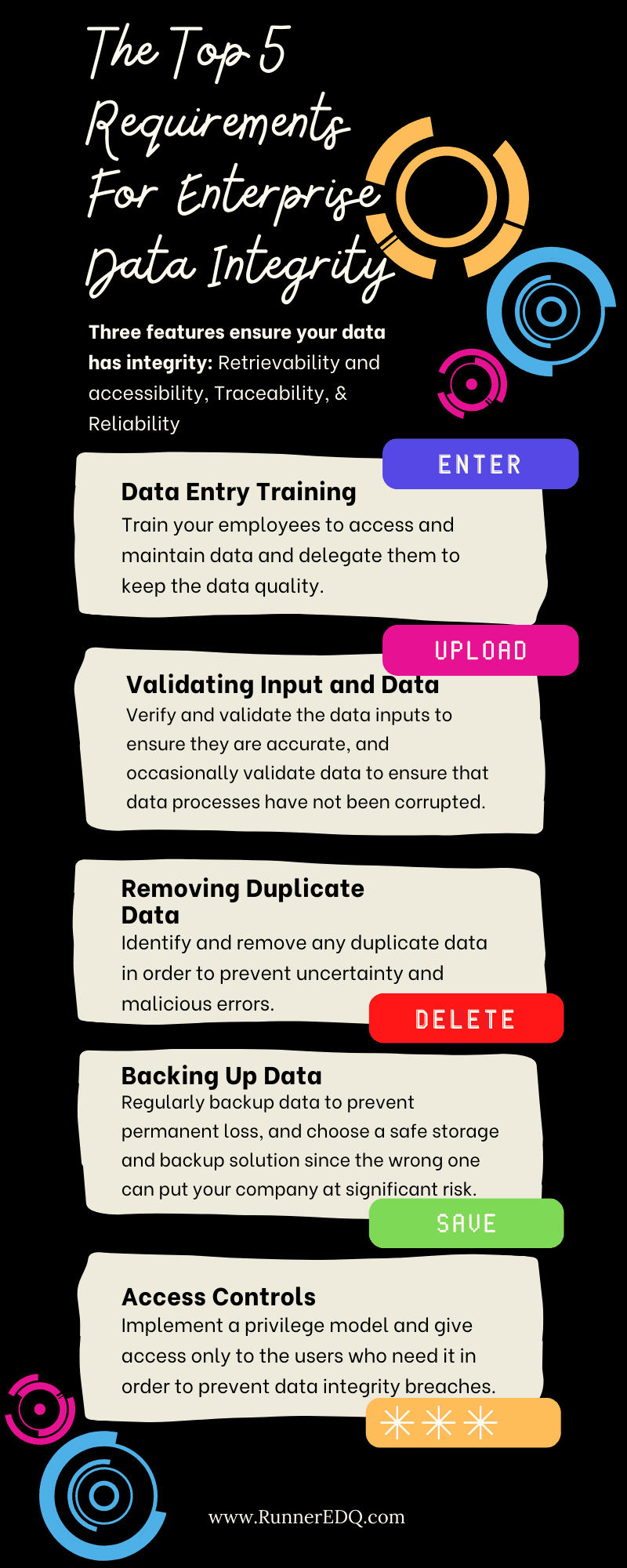Data is Your Superpower
2 MINUTE READ
To take full advantage of data as a strategic asset, businesses have to make data integrity their priority. Failing to keep track of data within an organization can have a significant impact on business decisions. That is why it’s crucial to preserve data integrity in an organization.
How Do You Know When Your Data Has Integrity?
Three features ensure your data has integrity:
Retrievability and accessibility:It’s vital to have accurate data in the proper locations and at the right time when your employees are working on projections, presentations, or deals. Without adequate and easy access/retrieval, your company might suffer, yielding the way for your competition to win.
Traceability:With a data point, you can track every interaction you make with a prospect or an existing customer. The data can highlight red flags, deficiencies, or limitations and inform decision-makers.
Reliability:Reliable and consistent business metrics against company goals and the competition is what takes a company to the top.
Requirements for Data Integrity
Here are five requirements that can help you preserve data integrity and minimize any risk for your business:
Data Entry Training
One of the biggest problems for businesses that want to maintain data integrity is the lack of employees’ knowledge of preserving it. Therefore, providing data entry training can be the best way to get started. Start by training your employees to access and maintain data and delegate them to keep the data quality. This will make sure everyone in your company is putting an effort to maintain data integrity.
Validating Input and Data
This is very important, primarily if your data is supplied by an unknown source like another application, an end-user, or third-party sources. You must verify and validate the data inputs to ensure they are accurate. Additionally, you also have to occasionally validate data to ensure that data processes have not been corrupted.
Removing Duplicate Data
One of the main reasons behind the breach of data integrity is duplicate data, and it often causes uncertainty and leads to malicious errors. That’s why it’s crucial to identify and remove any duplicate data on time.
Backing Up Data
Even if your business is taking all necessary measures to preserve data integrity, you still cannot risk losing permanent data. That’s why you must regularly take a backup of your data. Why? Because in the case of cyberattacks, data backup plays a vital part in ensuring you can bring everything back to normal and keep data integrity. You also must choose a safe storage and backup solution since the wrong one can put your company at significant risk.
Access Controls
When there is no access control in an organization, the chances of a data integrity breach increase tenfold. This leads cyberattackers to gain access to your data and cause serious harm to your business. Make sure to implement a privilege model and give access only to the users who need it. This way, there’s a high-level control, and data integrity is preserved.







